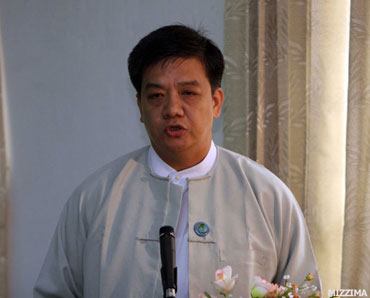The Burmese government will end prior censorship of news publications and form a press council to advise on media laws and ethnics, Information Minister Kyaw Hsan told journalists on Monday.

In a meeting held at Myanmar Radio and Television, he said that the changes would come into effect in June and July.
The council would include representatives from Myanmar Journalist Association (MJA), Myanmar Journalist Union (MJU) and the Myanmar Journalist Network (MJN). President Thein Sein will approve the council in June, according to Thurein Hlaing, a MJN executive committee member.
A local editor told Mizzima: “The minister said the government would relax censorship. The media bill will be drafted no later than June. It will be put forward in Parliament in July.”
The minister met with representatives of the MJA on Sunday and MJN and MJU representatives on Monday.
Apparently, according to local editors, government officials said the new media law will permit all publications to run stories without submitting articles to censors prior to publication.
The new law would allow news and religious publications (now under prior censorship) to publish without submitting stories to the PSRD prior to publication, but they would be required to submit articles after publication.
“To say it generally all journals and magazines must submit copies to censors only after publication,” Thiha Saw, the chief editor of Myanmar Dhana magazine, told Mizzima.
Kyaw Hsan, the minister of culture and information; Tint Swe, the deputy director general of the Information and Public Relations Department, deputy director general Myo Myint Maung and Ye Tint of the Printing and Publishing Enterprise attended Monday’s meeting.
Tint Swe recently wrote on his Facebook page that the PSRD, popularly known as the “Press Kempetai,”should be dissolved. The censorship board is frequently called the “Press Kempeitai”by the Burmese literary community, referring to the Japanese army’s brutal military police wing that was part of the occupation forces in Burma during World War II.
Tint Swe wrote: “All censorship tasks must be abolished completely. In the near future, new instructions and laws will come into effect. The writers who encountered serious obstacles and suffered will be free from the dark [obstacles and problems].”
He concluded the article, saying, “If you say my article is a message from the “Press Kempeitai,” who is in his dying breath, I’ll willingly accept it.”


